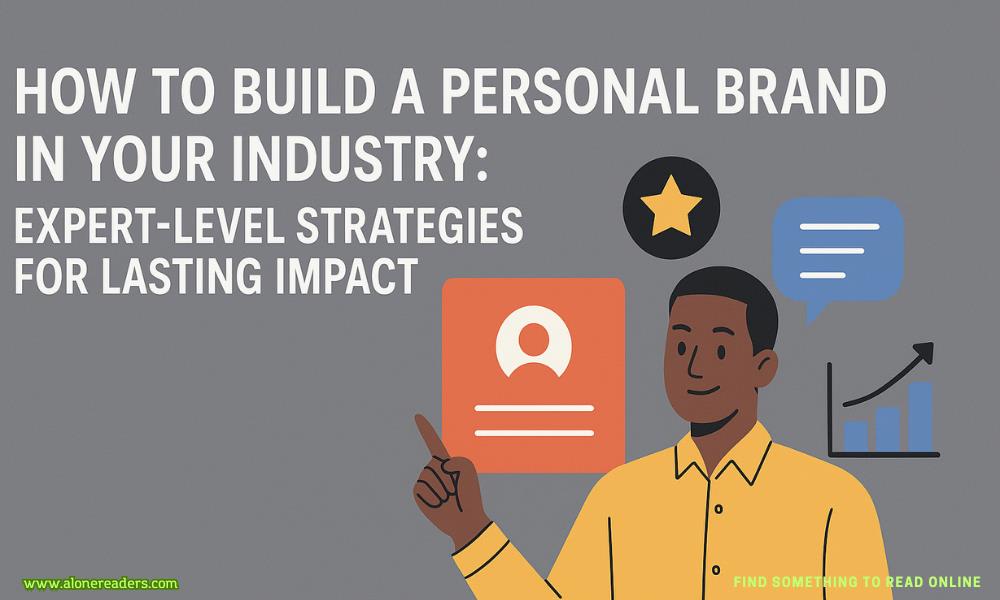
In today’s hyper-competitive, knowledge-driven economy, having technical skills or a great resume is not enough. Professionals who stand out are those who have mastered the art of personal branding—intentionally shaping how others perceive them, both online and offline. This isn't about self-promotion for the sake of attention; it's about establishing credibility, trust, and authority in your specific industry.
Let’s break down specific, actionable steps you can take to build a distinctive personal brand that positions you as a go-to expert in your field.
Know your niche, language, and audience
Before launching your brand-building journey, get crystal clear on the ecosystem you're entering:
Create a competitor matrix
List 5–10 individuals in your field who have strong personal brands. Audit their digital footprint, noting what makes them unique. This exercise helps you see gaps in the market—areas where your voice could fill a void or challenge prevailing views.
Your UVP is not your job title—it’s your differentiator
A strong UVP distills what you do, how you do it differently, and who you do it for. Here’s a formula to begin with:
“I help [target audience] achieve [outcome] by leveraging [unique skill, approach, or experience].”
Example:
“I help early-stage startups scale their engineering teams efficiently by applying enterprise-level software architecture and agile principles.”
This statement should live in your LinkedIn headline, Twitter bio, and elevator pitch.
Anchor your brand to real outcomes
Instead of saying you're "passionate about data," mention that you "help logistics companies reduce operational costs by using predictive analytics." Measurable, outcome-based language builds credibility.
Start with one content format you can master
Don’t spread yourself thin. Pick one medium based on your natural strengths:
Make your content solution-driven and specific to your industry pain points. The goal is to teach, not to promote.
Create pillar content and microcontent
Consistency in publishing and voice is key. Create a content calendar with 2–3 core topics that reinforce your UVP.
Your LinkedIn profile is your virtual storefront
Treat your LinkedIn not as a resume, but a branding page:
Professional website and personal domain
Having a personal website (e.g., yourname.com) boosts your credibility. Include:
Use this site to centralize your brand presence, especially if you plan to freelance or consult.
Engage strategically in communities
Whether on Twitter, Slack groups, Discord servers, Reddit, or niche industry forums—don’t just lurk. Provide value through insights, not just likes or emojis.
Participate in:
Guest appearances and collaborations
Visibility without alignment to your brand is noise. Ensure every engagement supports your positioning.
Share the journey, not just the destination
Tell stories about:
These build emotional connection and trust, especially on platforms like LinkedIn or personal newsletters.
Make it relatable, not polished
Perfectionism can feel robotic. Vulnerability in context (e.g., sharing how you once failed a project but came back stronger) makes your brand more memorable and authentic.
Speaking engagements are branding accelerators
Start small: internal company webinars, community meetups, or Toastmasters. Then graduate to industry panels and conferences. Always ensure:
Teaching scales your brand
Offer:
Mentoring builds legacy and influence
Not only does it solidify your knowledge, but mentees often become brand advocates. Consider mentoring through LinkedIn, industry groups, or university programs.
Let others validate you
Social proof is more persuasive when it’s earned and visible:
Instead of saying “I’m an expert in cloud architecture,” show that your client reduced their AWS spend by 40% after your optimization.
Use the “humble brag” technique
Share wins in a way that highlights the outcome for others. For example:
“Thrilled to see our team’s work save 20 hours a week for our client—automation done right!”
Track engagement and perception
Use tools like:
If certain posts get more engagement or DMs increase after a speaking event, that’s feedback on what resonates.
Audit quarterly
Every 3–4 months, revisit your:
This ensures your brand evolves with your skills and market relevance.
Final Thoughts
Building a personal brand is not a vanity project—it’s a strategic necessity for professionals in almost every industry today. Done right, it accelerates opportunities, builds authority, and creates long-term value beyond your current job title. But it requires intention, effort, and consistency. You’re not just building a brand—you’re building trust, reputation, and impact.
Start with clarity. Show up consistently. Offer real value. That’s how experts are made—and remembered.